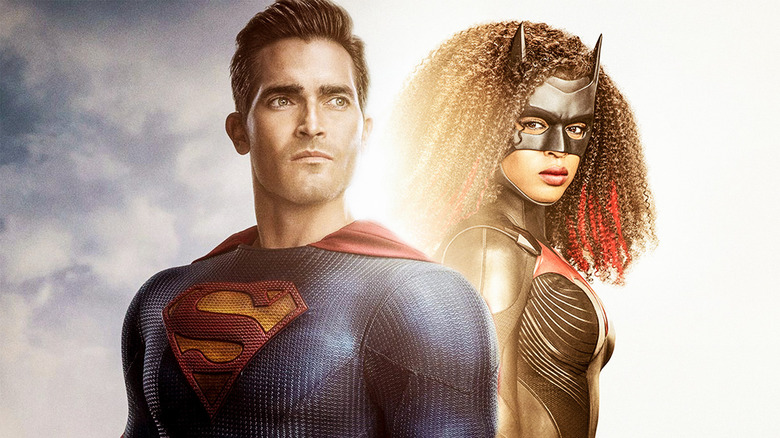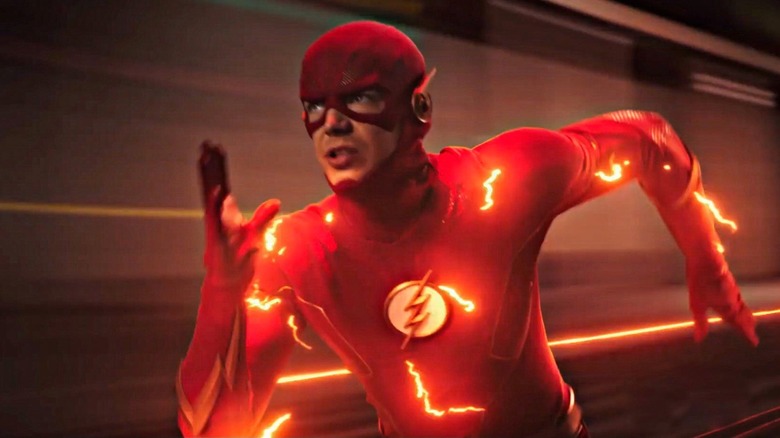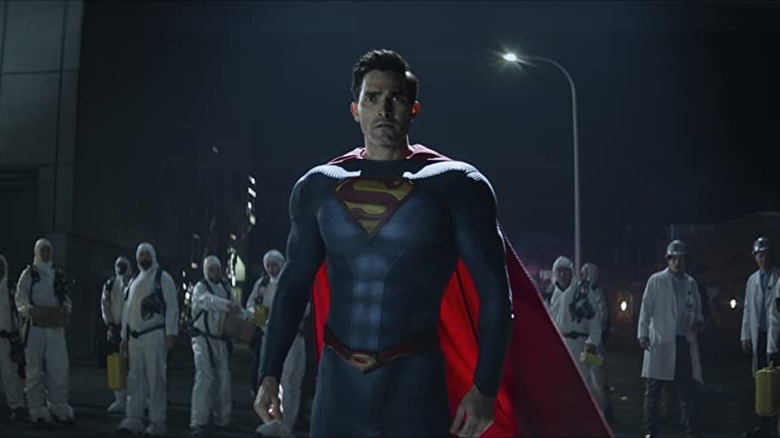What Happens To DC's Arrowverse If The CW Gets Sold?
Fans of the Arrowverse who don't keep up with business news may not be aware that the DC shows they love could be in for a big shake-up in the not-too-distant future. The CW, the network behind the hugely popular suite of shows based on characters from the pages of DC Comics, is apparently up for sale, with both WarnerMedia and ViacomCBS looking to get out of owning a TV network.
So, what does that mean for the future of the Arrowverse?
The CW's Possible Sale
As we recently reported, The CW has a "for sale" sign on it, and, though no deal has closed as of this writing, Nexstar Media Group, a company that owns a ton of TV stations in the U.S, is said to be the favorite to buy the network. No price has been disclosed but, as has been noted in much of the reporting, The CW has apparently never been profitable for the two media giants since it came to be in 2006 (when Warner Bros. and CBS merged what used to be UPN and The WB to create a new channel with shows from both).
Even before Hollywood doubled down on streaming in a huge way, the network had an issue getting into the green. Things have become increasingly difficult in recent years (we'll get into the specifics in a minute) and that may be motivating the sale. The idea is that WarnerMedia and ViacomCBS could divest their interests in network television and focus on streaming, with WarnerMedia focusing heavily on HBO Max (especially with the impending merger with Discovery), and VicaomCBS trying to make Paramount+ a viable competitor with the likes of Disney+ and Netflix. The way things are going, network TV is trending downward, while streaming is largely seen as the future. These two media giants appear to be going all-in on the future.
The Business Side
It doesn't take a lot of brilliant business math to determine that if an enterprise has been going for 16 years and hasn't ever turned a profit, getting out of that particular enterprise makes sense. But that begs the question, why would it make sense for someone else, like Nexstar for example?
Well, the idea is that the company would potentially cater its programming to the audience that still consumes network TV, which is largely older viewers. Nexstar is also known for programming to more conservative audiences, which might mean that it is less interested in The CW's YA fare, such as "Riverdale" or "Legacies," though it might very much want to keep "Walker" on the air.
It's likely that whoever buys the network would program for that audience, meaning cheaper shows geared towards channel surfers who either aren't too invested in the streaming world or are just turning on something as a means of casual distraction. Think stuff like game shows or talk shows. The shape of the network could radically change in the hands of a new owner, and that is what is important to remember when it comes to the future of shows such as "The Flash" and "Batwoman."
These shows are not necessarily cheap to produce, and they might not fit in with the network's new identity. But it's also important to remember that any major transition such as this will take quite some time to be approved by regulatory bodies, and there are a lot of moving parts. This wouldn't all change overnight. Ushering these shows to their logical end might be a good way to help bridge the transition, especially considering that "The Flash" is already in season 8 and is unlikely to run for much longer as it is. The same could be said for "Legends of Tomorrow." Looking at the large picture, there is enough business sense here for all parties involved, but that business involves change.
Streaming Is the Answer
In the end, for WarnerMedia and ViacomCBS, this all comes back to streaming. A big part of their business, as it relates to revenue, had to do with selling streaming rights to shows. Both companies produce content for The CW, and those shows would later be made available on Netflix, with the streamer paying a healthy sum for the privilege. But with both companies going into the streaming business for themselves, via HBO Max and Paramount+, that Netflix revenue went away.
In that same vein, international rights to The CW's shows represented a huge chunk of change. However, the proliferation of streaming has made it so that international sales are no longer what they once were, which also cuts into the bottom line. The CW was never profitable, but when we take away those revenue streams, the picture becomes clear. That is why now is the time to sell. And, more to the point, it will allow both parties to focus on their own interests, particularly in the streaming game. This is where the future of the Arrowverse, or what will remain of it when the dust settles, likely exists.
HBO Max has already become a gigantic hub for DC content, with shows like "Doom Patrol" and "Titans" making the jump. Not to mention that many, many shows are in development, including multiple spin-offs set within the universe of "The Batman," several "Justice League Dark" projects from J.J. Abrams, and a "Superman" series from Michael B. Jordan. Do you see where we're going with this? Wouldn't it make sense to take what Arrowverse shows remain on the air once the buyout is done and house them on HBO Max along with the rest of the DC stuff Warner Bros. is cooking up?
If we look at a rough timeline, it seems safe to assume that "The Flash" and "Legends of Tomorrow" will probably reach a logical conclusion before they would have to make the jump. "Supergirl" and "Black Lightning" already ended their runs. That leaves "Batwoman," "Superman & Lois," as well as the new series "Naomi," which has not yet necessarily been confirmed to exist in that universe (or multiverse, rather). The same goes for "Stargirl," which airs on the network but has not yet crossed over with any of the other Arrowverse shows.
All of that having been said, it would be easy enough (and would make business sense from a branding perspective) to move those shows to HBO Max when the time comes. We can't say definitively that this is what's going to happen, but a reading of the tea leaves certainly points in that direction.



